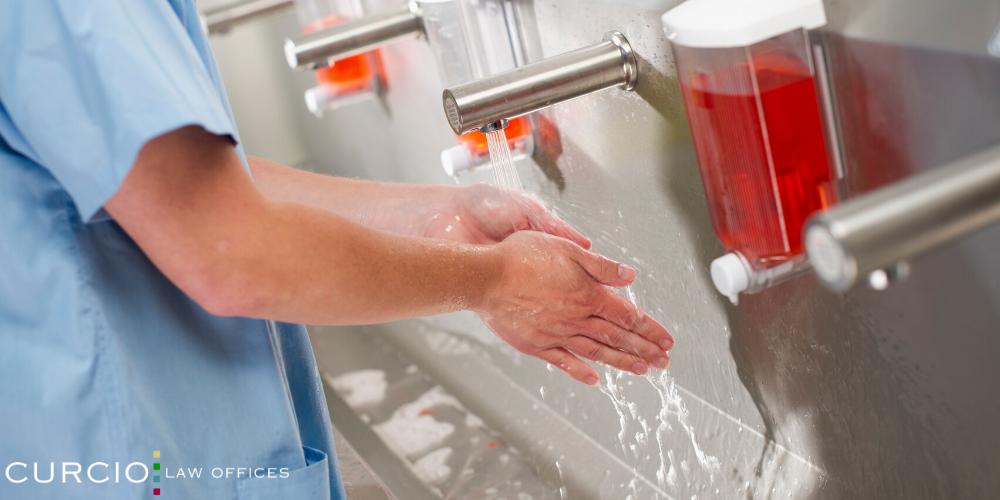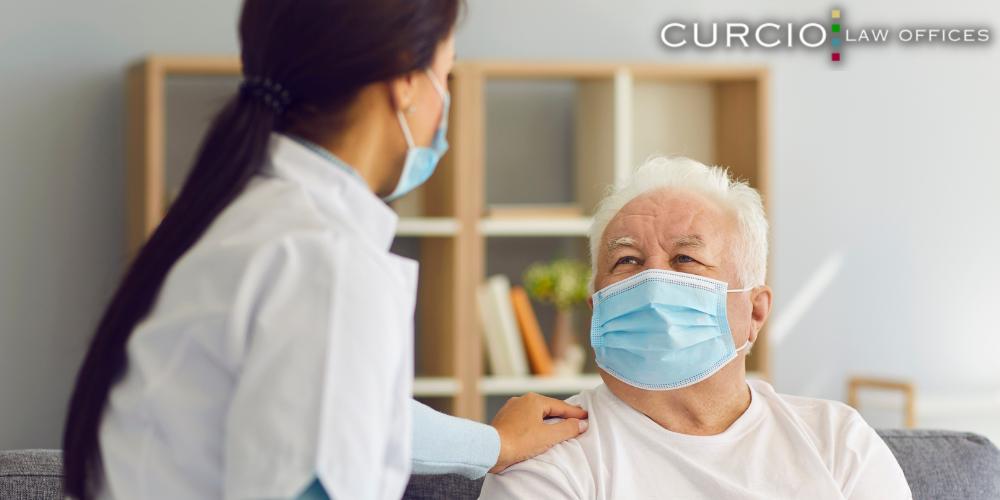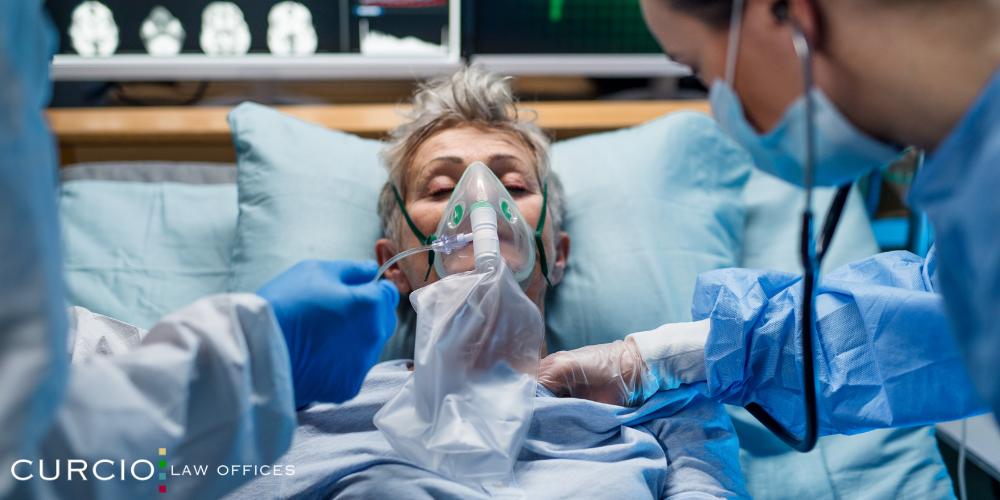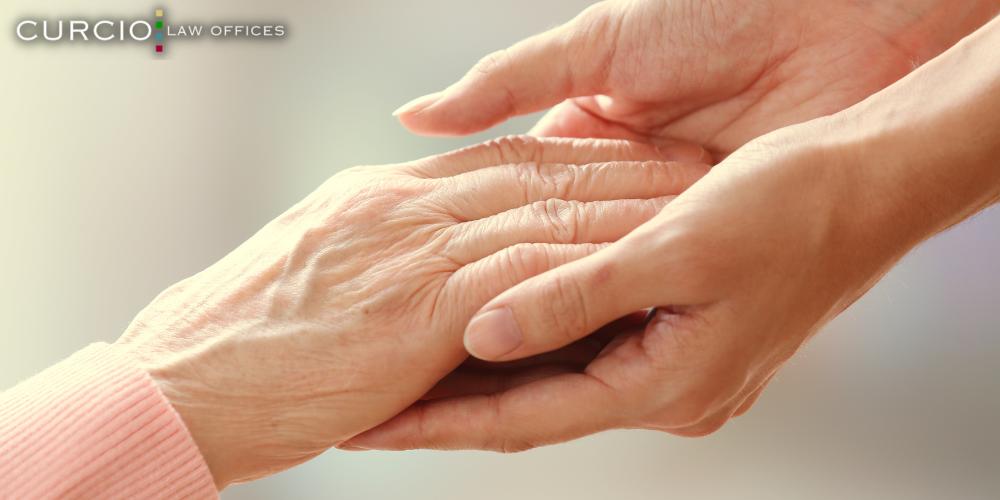CHICAGO MRSA LAWYER
PRACTICE AREAS
MRSA Nursing Diagnosis in Chicago Nursing Home
Methicillin resistant staphylococcus aureus (MRSA) is a type of staph skin infection that’s antibiotic-resistant and can lead to major health consequences, especially among the elderly population. Unfortunately, MRSA is one of many common infections that can circulate in nursing homes due to a variety of factors, including abuse, neglect, and poor hygiene.
If your elderly loved one has suffered one or more cases of MRSA in their nursing home, abuse and neglect may be occurring. The good news is that you can file a civil lawsuit in order to receive full financial compensation for your loved one’s suffering. A seasoned Chicago nursing home abuse attorney at Curcio & Casciato has decades of combined experience in fighting for justice for the elderly population. Call 312-321-1111 to schedule a free consultation with our Chicago nursing home infection lawyer today.

What is MRSA?
Methicillin resistant staphylococcus aureus (MRSA) is a skin infection that is uniquely resistant to many antibiotics compared to other staph infections and has the ability to spread quickly. Oftentimes, it is referred to as a “superbug” because of its resistance to antibiotics. The Centers for Disease Control and Prevention (CDC) reports that an estimated 33% of people harbor this disease in their nose cavities. MRSA bacteria can also exist in body parts such as the armpits, groin, and buttocks.
HA-MRSA vs. CA-MRSA
The two main types of MRSA include healthcare-associated MRSA (HA-MRSA) – which is found mainly in hospital patients and long-term care facility residents – and community-associated MRSA (CA-MRSA) – which is found in those who have not had contact with healthcare facilities.
CA-MRSA means that the staph infection spreads in the community, most often in places that involve crowding, skin-to-skin contact, and shared equipment or supplies. Athletes, children at daycare, and school students are most at risk for community-associated MRSA.
HA-MRSA is spread throughout healthcare facilities by contact with hands with MRSA on them (usually those of healthcare providers), an infected wound, or someone who carries MRSA but does not have signs of an infection.
Risk Factors for Developing a MRSA Infection
Anyone can develop MRSA. The risk increases with activities or places that involve crowding, skin-to-skin contact, and shared equipment or supplies. Some of the people who carry MRSA can go on to get a MRSA infection, especially if they have an open wound. Those more at risk of developing this type of infection include:
- People with an weakened immune system, like the elderly population or those with chronic illnesses
- Hospital or nursing home patients
- Hospitalized patients that require surgery or medically invasive devices, such as breathing tubes, feeding tubes, and catheters
- Athletes
- Prisoners
- Teachers and students at schools and daycare centers
- Military personnel in barracks
- Healthcare workers

How Many Nursing Home Residents Suffer From MRSA Every Year?
Nursing home residents are more susceptible to MRSA and other staph infections due to multiple risk factors, such as weakened immune system, healthcare workers, invasive medical equipment, as well as poor hygiene (especially if nursing home neglect is occurring).
The University of Michigan Medical School research study revealed that 1 in 4 elderly residents have MRSA in nursing home settings. The study also suggests that healthcare workers often transmit MRSA to the patients through patient-to-patient contact. The spread of MRSA through gloves was exceptionally high in this study because many workers didn’t change their gloves in between patients.
MRSA Symptoms
The symptoms of a MRSA infection depend on the part of the body that is infected. MRSA is often confused with a spider bite. Most MRSA infections appear as a bump or infected area on the skin that may be:
- Red
- Swollen
- Painful
- Warm to the touch
- Full of pus or other drainage
- Accompanied by a fever
However, severe MRSA infections can cause symptoms such as:
- Chest pain
- Cough
- Shortness of breath
- Fatigue
- Fever and chills
- Malaise
- Headache
- Rash
- Chronic wound
- Bloodstream infections
Death is a possible result of all the above complications. If left untreated, for example, a lung infection can fill the lungs with pus until breathing becomes impossible.
Causes of MRSA Infections in Nursing Homes
MRSA can be carried by a person without any signs or symptoms. Even though the host might not get sick, he or she can transmit the bacteria to others with open wounds or other entry points. The elderly generally have weakened immune systems, making them more susceptible to all infections. Even infections like urinary tract infections, bedsores, and surgical wounds can lead to HA-MRSA infections.
In the study mentioned above, it is suggested that the most common nursing home activities that lead to the transmission of MRSA are changing bedding, changing diapers, and providing overall hygiene.
Healthcare settings like nursing homes are especially vulnerable to infections. Catheters, breathing tubes, and feeding tubes are all common sources of infection, and caregivers are responsible for multiple patients. Nursing home neglect and abuse are also common in the U.S., both of which can lead to various infections, including MRSA.
Our Chicago nursing home UTI lawyers and Chicago nursing home bed sores attorneys have extensive experience litigating these claims.
Diagnosing MRSA Infections
In order to diagnose a MRSA infection, your doctor may recommend tests, such as a skin biopsy and culture from the infected site, culture of the drainage from the infection, or a blood culture.

MRSA Infection Complications
Staph infections can lead to serious complications, more so if the patient does not receive the proper treatment in a timely manner. Complications of a more severe staph infection can include:
- Meningitis – an infection of the brain or spinal cord
- Pneumonia
- Heart valve infection
- Infection surrounding a medical device, such as a pacemaker or IV port
- Bone or joint infection
- Kidney failure
- Sepsis
- Death
- Wound infections
Unfortunately, elderly people in nursing homes have a higher risk of contracting severe infections and complications due to a weakened immune system and nursing home abuse.
MRSA Infection Treatment
Treatment of MRSA usually depends on the severity of the infection. Many infections can be treated by draining the abscesses. More serious infections may need antibiotic treatment.
Some antibiotics may be a successful MRSA treatment, which includes vancomycin (Vancocin, Vancoled), trimethoprim-sulfamethoxazole (Bactrim, Bactrim DS, Septra, Septra DS), and linezolid (Zyvox).
You must finish all doses of antibiotics you have been given, even if you feel better, before the final dose. Unfinished doses can lead to the development of drug resistance in the bacteria.
MRSA Infection Prevention in Nursing Homes
All healthcare facilities should have infection control policies in place to screen residents for MRSA after discharge from another medical facility, such as intensive care of acute care facilities. Residents who test positive for MRSA must go into a private room, and healthcare providers treating the patients must wear gloves and gowns over their clothing. Healthcare providers should also take the following precautions to try and prevent MRSA:
- Help their patients maintain good hygiene
- Sanitize high-touch areas
- Ensure that all patients have clean linens, clothes, towels, etc.
- Ensure all medical equipment is properly sanitized
- Keep all patients’ skin infections (i.e., bedsores) clean and bandaged
- Maintain good hygiene by washing hands frequently and changing gloves and gowns between each patient.
Healthcare workers must immediately treat the infection if a patient develops MRSA. Unfortunately, some nursing homes fail to follow MRSA prevention procedures, which then results in outbreaks among high-risk patients.
Can I Sue for MRSA in Nursing Homes?
If you have a loved one who has suffered from one or more MRSA infections that you believe to be a result of nursing home abuse and neglect, you may have grounds to pursue legal action with support from one of the experienced Chicago, IL personal injury attorneys at Curcio & Casciato. If you have evidence that supports the nursing home health providers and staff failing to treat any MRSA infection within a timely manner, which then led to severe complications, you can seek compensation from a nursing home lawsuit or even a medical malpractice lawsuit.
How to Prove Nursing Home Negligence
You must build a strong case in order to receive financial compensation. A Chicago medical malpractice lawyer at Curcio & Casciato can help you gather the necessary evidence to prove physical, emotional, or financial damages. This evidence usually consists of the following:
- Medical records showing exams, treatments, and prescriptions by a licensed physician
- Medical expenses for related illnesses and injuries
- Insurance claim documents
- Resident files and charts from the nursing home
- Documents providing your relationship with the victim
- Photo and video evidence that can prove abuse or neglect
Though there are many reasons nursing home abuse and neglect occur, many cases are caused by Chicago nursing home understaffing or having staff members and caregivers who are overworked, underpaid, and stressed out by situations that they are not equipped to handle. Staff members and caregivers working under these circumstances often have a negative attitude towards their job and patients, suffer from sleep deprivation, and make mistakes on the job. Unfortunately, these mistakes can lead to MRSA outbreaks among residents.



